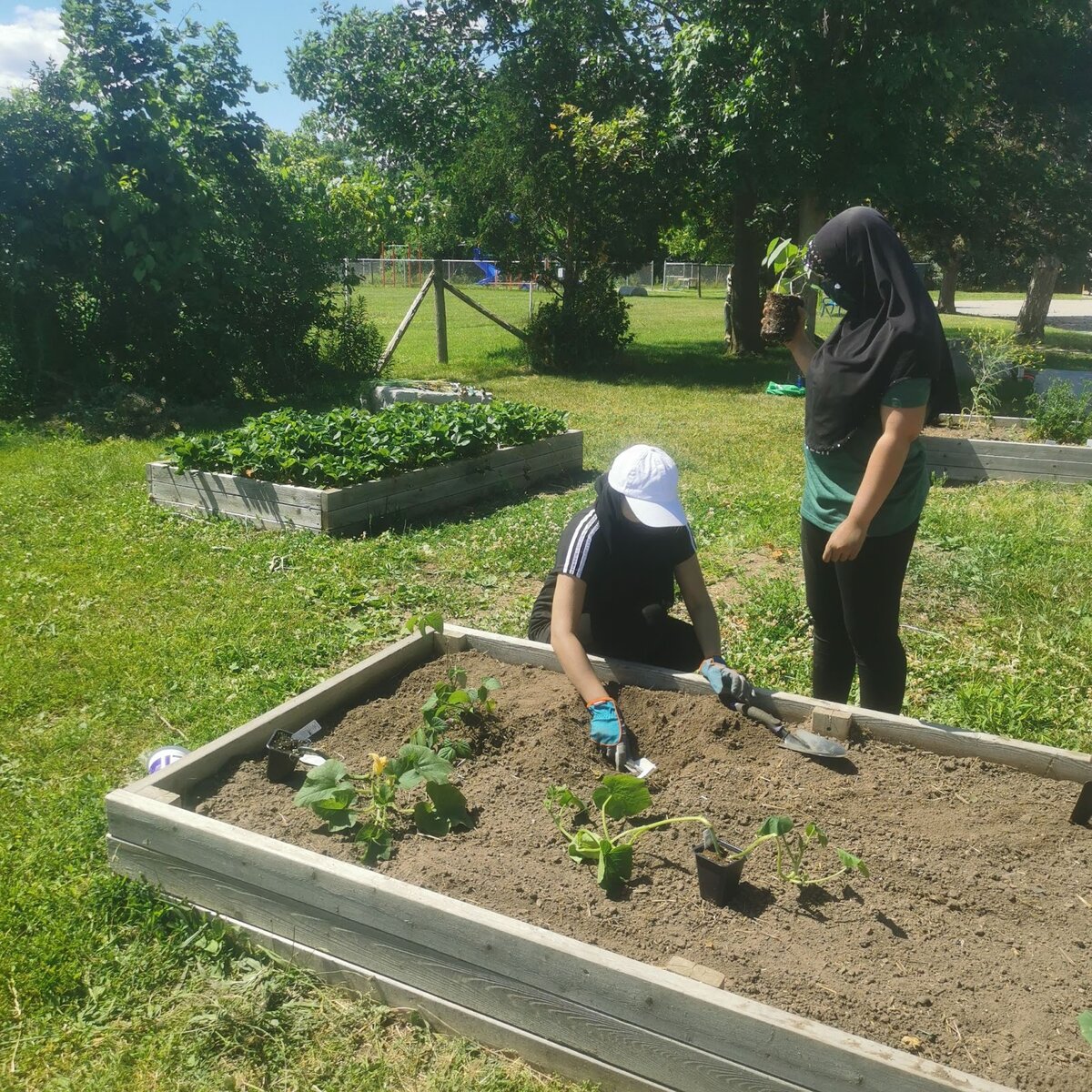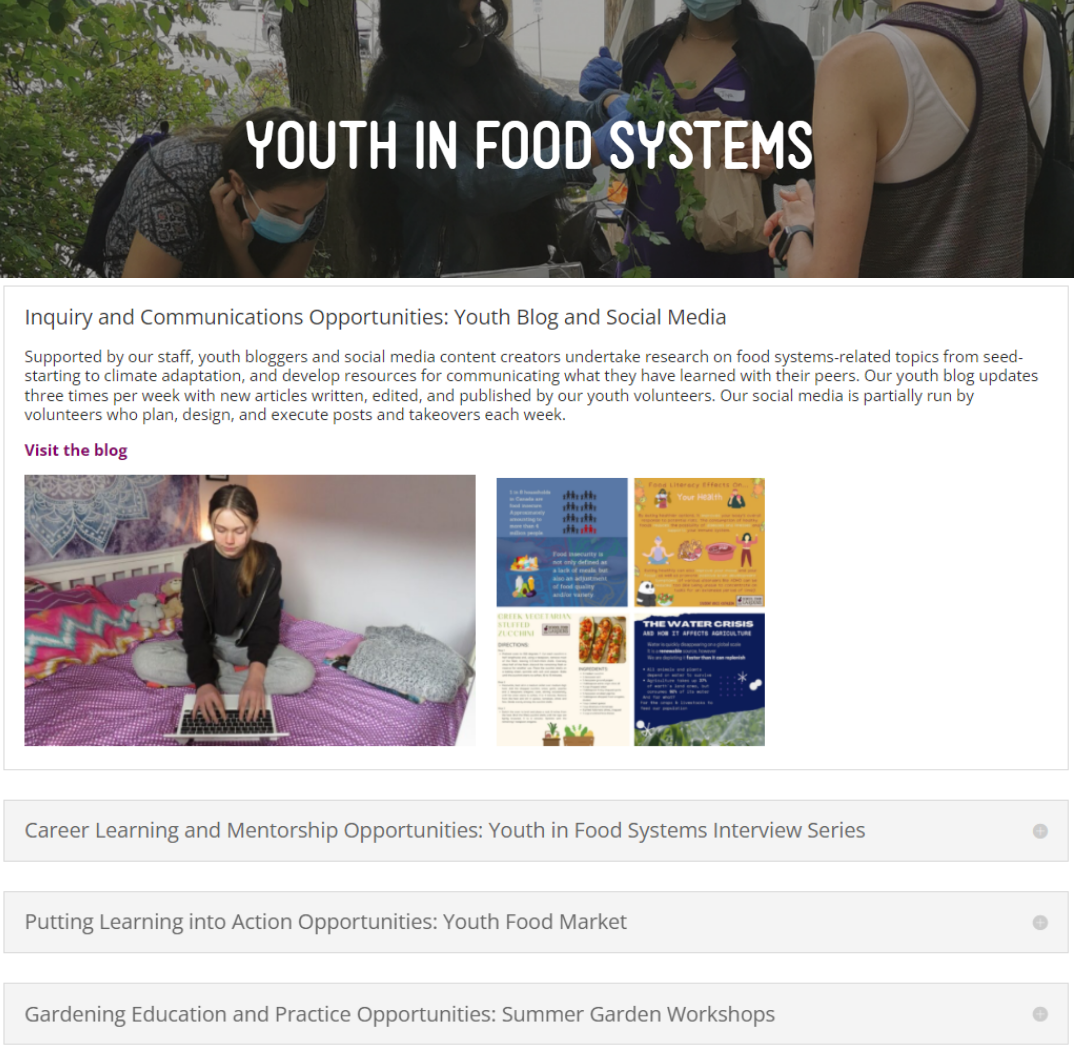Back to December 2021 Newsletter
Youth: Agents of Food Systems Change

Youth: the period between childhood and young adulthood
Agent of change: A person who promotes and supports a new way of doing something
Food is one of those really beautiful and really rare things in this world that we all have in common. Regardless of age or location, regardless of ethnicity or wealth, we all need food to survive. Unfortunately, the past few decades have resulted in industrialized food systems that have been costly for our health and the environment. Monocrops leading to widespread pesticide use and soil degradation; contamination of air, water, and land; production of low-nutrient foods in excessive quantities; inequities and workplace hazards. There is no shortage of grievances against current farming practices that dominate most of the world today.
The first step could be as simple as this: provide opportunities for youth engagement in food systems. Give young people the space and the tools needed to explore what our food systems are made up of, how they operate, where the unsustainable practices lie, and what possibilities exist to transform them. Ensure that there is knowledge and understanding of what we’re up against.
Our School Food Gardens project is well on its way towards this goal with its new Youth in Food Systems program. Facilitated by our team of coordinators, this program provides self-directed, inquiry based roles for high school students across Ontario to learn about food, and communicate their learnings with peers through various mediums. Furthermore, our youth team has opportunities to put learning into action, explore food systems careers, and get their hands dirty in the garden.
What comes after this?
The battle doesn’t end with an increased knowledge base, or with more youth engaged in our food systems. Systemic change is challenging, and doesn’t happen overnight. It’s usually a long, drawn out process, and the clock is ticking. But change can happen in a single generation. Here are some guiding principles that can evoke systemic change:
-
Convene people who understand and care about the issues.
-
Reimagine the system.
-
Find opportunities to work towards that reimagined system.
-
Experiment new ways of doing things, and track the results.
-
Communicate a coherent story.
-
Build strong partnerships.
If you’re reading this, chances are you care to see our food systems transformed. Do you want to support youth engagement in sustainable food? You can do so in a number of ways:
Happy holidays!
Not yet a member?
An annual membership to Seeds of Diversity gives you access to our seed exchange, seed grow-out programs, and our online news.

We depend on donations to do our work.

Thank you for your support!

